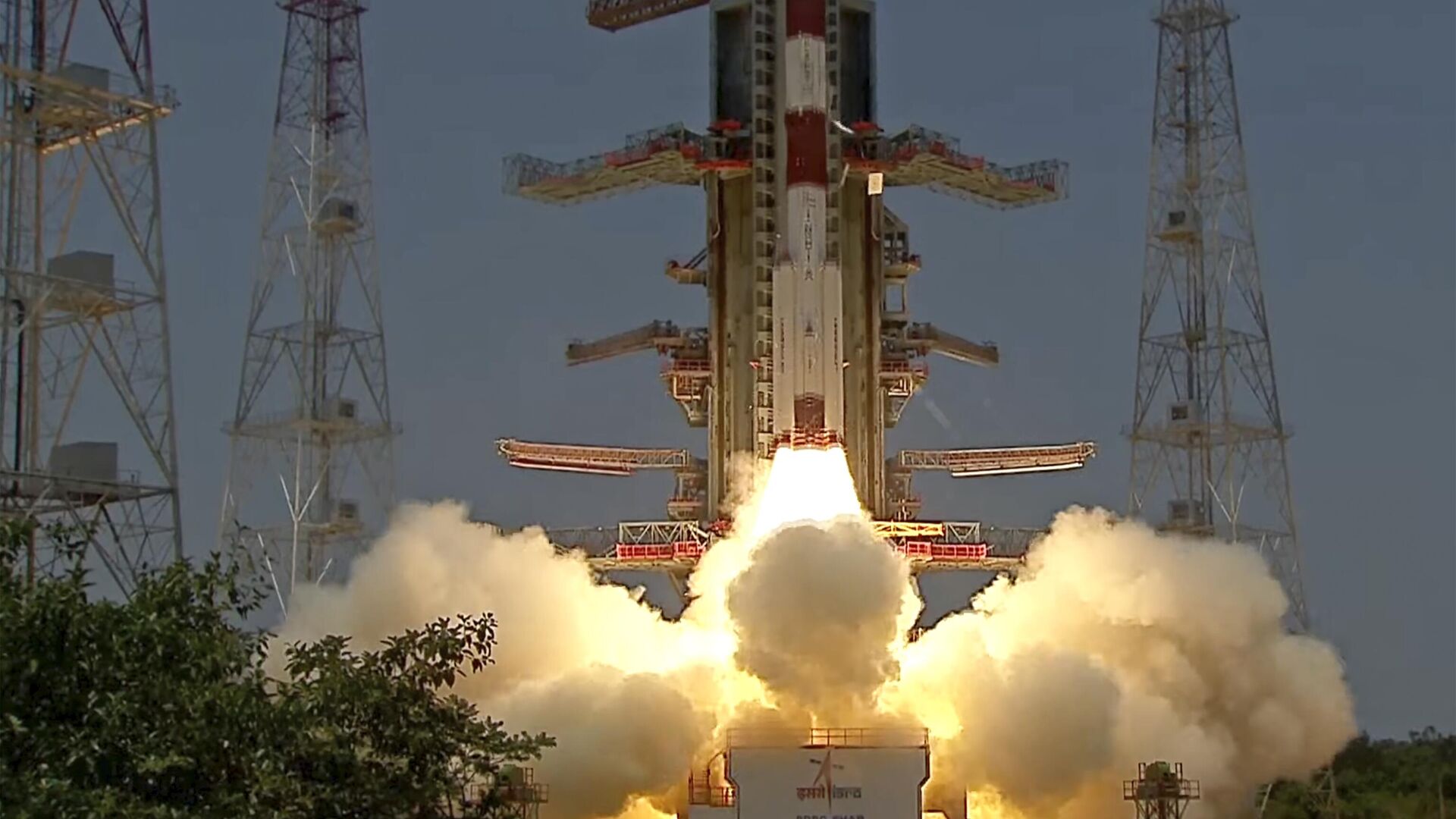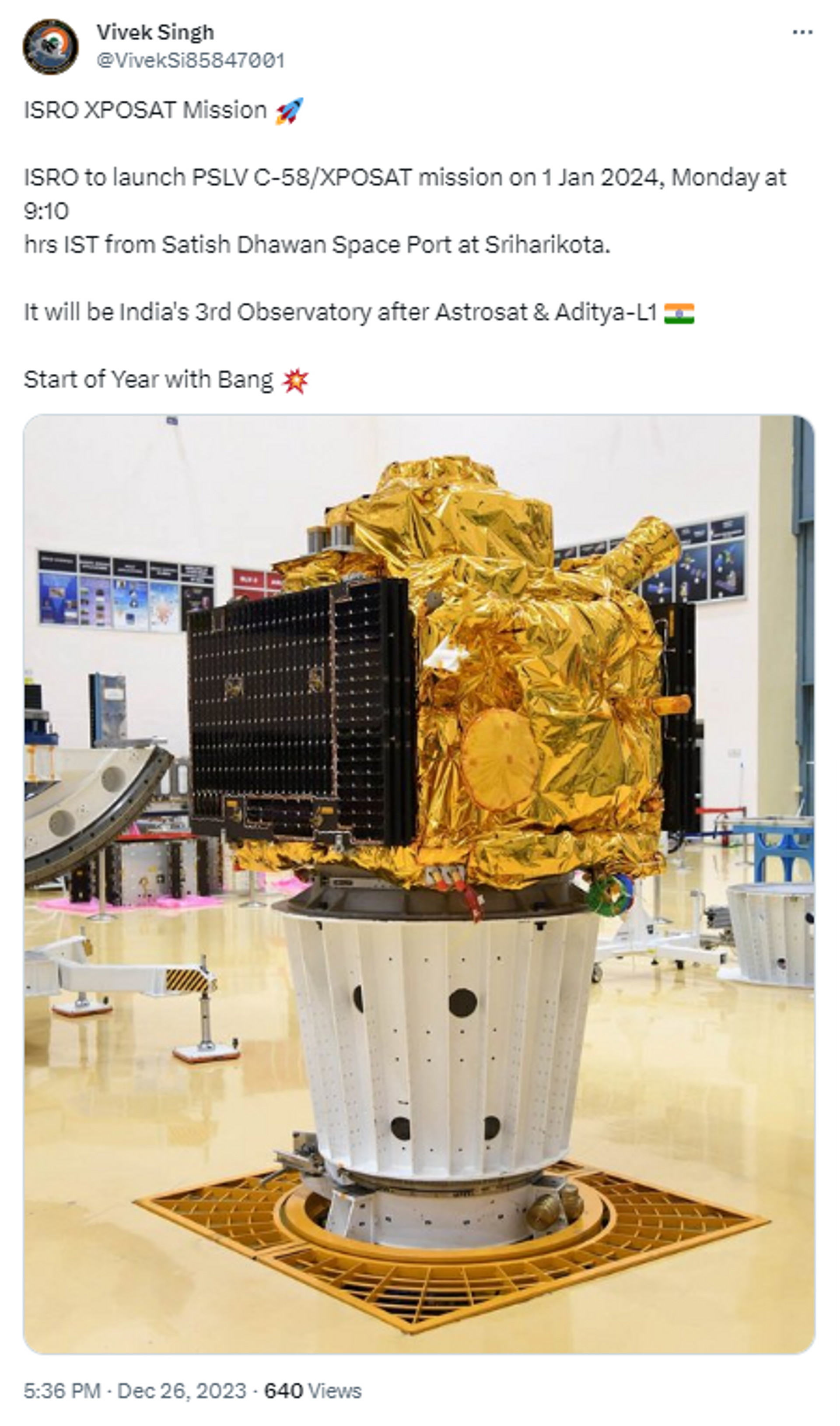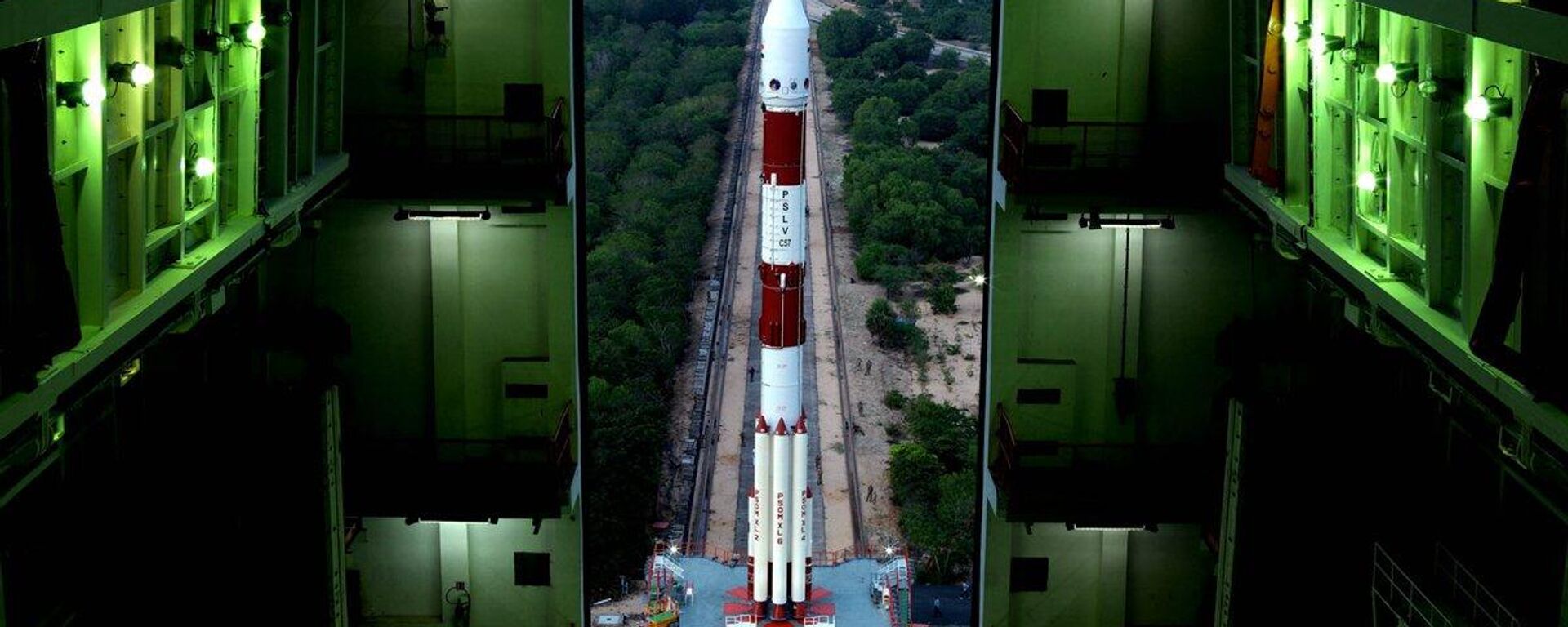https://sputniknews.in/20231226/isro-to-launch-xposat-indias-first-x-ray-polarimeter-satellite-on-1-january-5974471.html
ISRO to Launch ‘XPoSat’, India’s First X-Ray Polarimeter Satellite, on 1 January
ISRO to Launch ‘XPoSat’, India’s First X-Ray Polarimeter Satellite, on 1 January
Sputnik India
India's first X-Ray Polarimeter Satellite (XPoSat) is set to make history as the Indian Space Research Organization (ISRO) plans a landmark launch aboard a Polar Satellite Launch Vehicle (PSLV) on 1 January, 2024.
2023-12-26T19:37+0530
2023-12-26T19:37+0530
2023-12-26T19:37+0530
science & tech
india
polar satellite launch vehicle (pslv)
indian space research organisation (isro)
andhra pradesh
science & tech
https://cdn1.img.sputniknews.in/img/07e7/0b/08/5301128_0:160:3072:1888_1920x0_80_0_0_88851105cbee91d7f6065862d408b712.jpg
India's first X-Ray Polarimeter Satellite (XPoSat) is set to make history as the Indian Space Research Organization (ISRO) plans a landmark launch aboard a Polar Satellite Launch Vehicle (PSLV) on 1 January, 2024.The launch will take place at 9:10 a.m. Indian Standard Time (IST) from the Satish Dhawan Space Centre First Launch Pad in Andhra Pradesh.The XPoSat deep-space observatory is about to begin a five-year scientific mission to unravel the mysteries of the universe by taking X-ray images of celestial objects to study the physics of their environments.The ambitious mission aims to study the 50 brightest cosmic signals, such as pulsars, black hole X-ray binaries, active galactic nuclei, neutron stars and supernova remnants.The mission's primary instrument, POLIX, will study the medium X-ray spectrum (8-30 keV) to measure the degree and angle of polarisation.Its partner, XSPECT, will study the 0.8-15 keV range, providing essential spectroscopic insights that will enhance these discoveries.Developed by the Raman Research Institute and the U R Rao Satellite Centre, these instruments have the potential to revolutionise a comprehensive understanding of celestial phenomena.
https://sputniknews.in/20230927/x-ray-polarimeter-satellite-mission-set-for-december-launch-isro-chief-4465163.html
india
andhra pradesh
Sputnik India
feedback.hindi@sputniknews.com
+74956456601
MIA „Rossiya Segodnya“
2023
Sangeeta Yadav
https://cdn1.img.sputniknews.in/img/07e6/0c/0f/110602_0:0:641:640_100x100_80_0_0_c298016a79eb02ef8caa9d1f688c12a5.jpg
Sangeeta Yadav
https://cdn1.img.sputniknews.in/img/07e6/0c/0f/110602_0:0:641:640_100x100_80_0_0_c298016a79eb02ef8caa9d1f688c12a5.jpg
News
en_IN
Sputnik India
feedback.hindi@sputniknews.com
+74956456601
MIA „Rossiya Segodnya“
Sputnik India
feedback.hindi@sputniknews.com
+74956456601
MIA „Rossiya Segodnya“
Sangeeta Yadav
https://cdn1.img.sputniknews.in/img/07e6/0c/0f/110602_0:0:641:640_100x100_80_0_0_c298016a79eb02ef8caa9d1f688c12a5.jpg
x-ray polarimeter satellite, xposat, space mission, polarisation of light, polarimetry tool, astronomers, celestial objects, comets, chandrayaan 3 lunar mission, aditya l1, indian space research organisation, isro, astronomy, environments, s somanath, indian national space academy, emissions, black holes, neutron stars, active galactic nuclei, pulsar wind nebulae, chemical makeup, spectroscope, payloads, polarimeter instrument in x-rays, polix, x-ray spectroscopy and timing, xspect, full form
x-ray polarimeter satellite, xposat, space mission, polarisation of light, polarimetry tool, astronomers, celestial objects, comets, chandrayaan 3 lunar mission, aditya l1, indian space research organisation, isro, astronomy, environments, s somanath, indian national space academy, emissions, black holes, neutron stars, active galactic nuclei, pulsar wind nebulae, chemical makeup, spectroscope, payloads, polarimeter instrument in x-rays, polix, x-ray spectroscopy and timing, xspect, full form
ISRO to Launch ‘XPoSat’, India’s First X-Ray Polarimeter Satellite, on 1 January
After the successful launch of the Chandrayaan-3 lunar mission and Aditya-L1, the Indian Space and Research Agency (ISRO) will launch India's first X-ray Polarimeter Satellite (XPoSat) on January 1.
India's first X-Ray Polarimeter Satellite (XPoSat) is set to make history as the Indian Space Research Organization (ISRO) plans a landmark launch aboard a Polar Satellite Launch Vehicle (PSLV) on 1 January, 2024.
The launch will take place at 9:10 a.m. Indian Standard Time (IST) from the Satish Dhawan Space Centre First Launch Pad in Andhra Pradesh.
The
XPoSat deep-space observatory is about to begin a five-year scientific mission to unravel the mysteries of the universe by taking X-ray images of celestial objects to study the physics of their environments.
The ambitious mission aims to study the 50 brightest cosmic signals, such as pulsars, black hole X-ray binaries, active galactic nuclei, neutron stars and supernova remnants.
The mission's primary instrument, POLIX, will study the medium X-ray spectrum (8-30 keV) to measure the degree and angle of polarisation.
Its partner, XSPECT, will study the 0.8-15 keV range, providing essential spectroscopic insights that will enhance these discoveries.
Developed by the Raman Research Institute and the U R Rao Satellite Centre, these instruments have the potential to revolutionise a comprehensive understanding of celestial phenomena.




